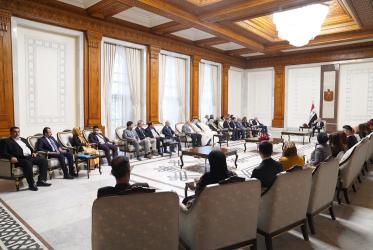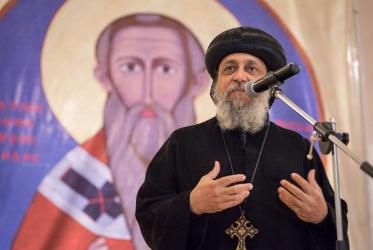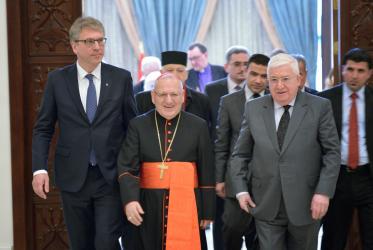Displaying 1 - 20 of 29
A voice for peace from Down Under
10 July 2017
Carrying the cross without fear
12 April 2017
“When everybody is building walls, the church can build bridges”
30 January 2017
Strong bridges needed more than ever
21 December 2016
Paralyzed by shock
28 November 2016
Palestinian Christians face loss of land
27 April 2016
Lebanese foreign minister welcomed at the WCC
06 March 2015
Call on Holy Land pilgrims to work for peace
25 May 2010














